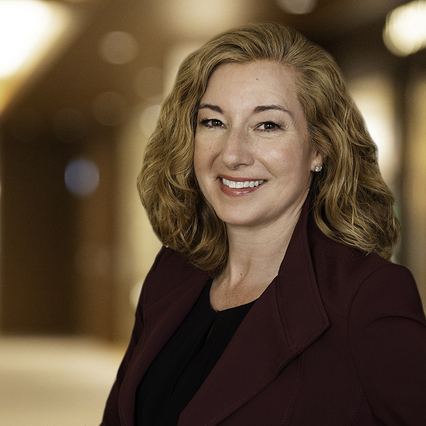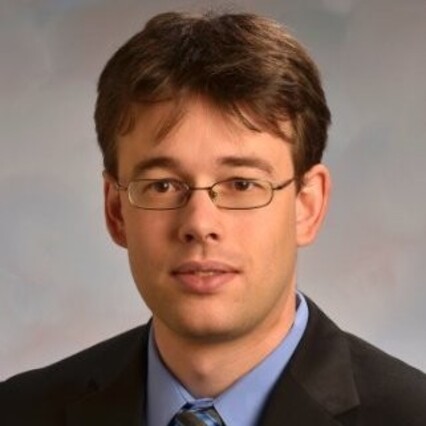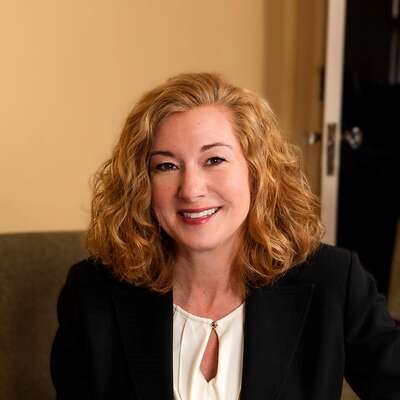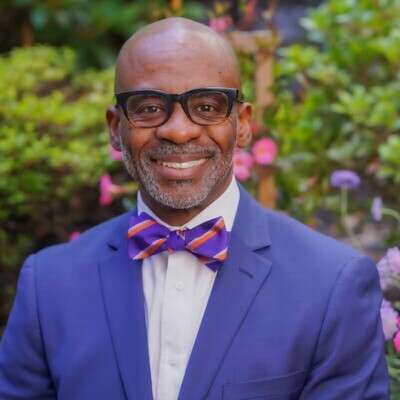Lisa Vuona, Managing Partner, Boyden Boston, has a candid conversation with Louis Diez about the future of annual giving programs.
I had the incredible honor of sitting down with Louis Diez, Executive Director of Annual Giving at Muhlenberg College, to learn more about his cutting-edge work within annual giving. I recently met Louis after reading a few of his posts on LinkedIn. So, I reached out and we started a connection. It was such a pleasure to connect and have a candid discussion about his work.

Lisa Vuona

Louis Diez
Vuona: Can you talk a little about your background and how you became involved in fundraising?
Diez: I grew up in Spain and received my MBA and Ph.D. in Business. I thought I might want to get into fundraising, but fundraising doesn’t really exist there. Spain doesn’t really have a culture of philanthropy. So, I decided to head to the States and went to the University of Tennessee and studied music and the Viola, and met my wife, who plays the violin. After graduating, I had a moment where I thought, “Oh my goodness, what am I going to do next?” So, I did a personal marketing campaign and wrote to every arts organization in New York City to propose myself as an internship candidate. I went to work for The Lincoln Center and AEA Consulting as an intern, and then I was able to gain more insight into fundraising and why people support organizations.
I returned to Tennessee, did some networking, and reached out to the advancement office at the University of Tennessee, and they offered me a role within their Alumni office, and so began my career in fundraising.
Vuona: What brought you to Muhlenberg?
Diez: My advancement career developed mostly in Higher Education and in the annual fund space. I enjoy the individual giving side of fundraising. The attraction to Muhlenberg was mainly because of the University’s mission and its focus on community. The students, faculty, and alumni are very connected and caring people, and that really attracted me to the University. Personally, Allentown is a great place for my family, and it has been a great fit because our advancement office is very creative and they are open to new and cutting edge ideas.
Vuona: Speaking of cutting edge, you have pioneered the Donor Participation Project (DPP) – can you talk more about this?
Diez: It started about 15 months ago. It was the middle of the pandemic and I had this need to talk about topics related to donor participation. There was a lot of information out there about campaigns and major gifts, but I felt like it was very superficial in nature. I had a dissatisfaction with the status quo.
Over the past 25-30 years, many advancement offices have been stuck in this trend of only looking at campaigns and major giving and forgetting about donor participation. I had gurus in the annual giving space saying we all need to wake up before we are out of a job. So, the realization that more needs to be done with donor participation really hit me! I then started the Donor Participation Project and we now have over 1,000 members. As a businessperson, I wanted to fix the problem and find a solution.
It started as a monthly meeting with a handful of annual giving professionals and then it organically grew, and now we have sub-groups working on different topics and with interviews posted on LinkedIn.
Vuona: Who are the DPP members?
Diez: It’s across the country and internationally. Anyone can join, but our members are mainly in annual giving at the Executive Director/Assistant Vice President level. We also have sub-groups that are part of the larger DPP so that peers can get together and connect more closely with someone from a similar organization.
Vuona: Will there be a DPP conference in the future?
Yes, but it is a bit complicated because post-COVID some colleagues still have frozen or reduced budgets, and attending a conference can be complicated. We are grappling with what a conference would look like, but we would like to have one in the future.
Vuona: How can someone get involved?
Diez: Go to our website MarktLab – Donor Participation and Engagement– or reach out to me on LinkedIn, (19) Louis Diez | LinkedIn.
Vuona: What are some trends you are seeing?
Diez: I will share a few thoughts from all the conversations I’ve had over the past year or so:
1) Smaller foundation shops are really struggling right now to manage the volume of work and the increased complexity of the work. Annual giving has really shifted from historically sending out one maybe two appeals a year to now having increased letter campaigns, email campaigns, texting strategies, giving Tuesday, etc. Everything has become digital and it is really dependent on quality data right now. And thanking people promptly is so important, but without the bandwidth you can’t achieve this. There are studies that say, if you thank people right away, within 48 hours for example, your retention rate will increase 400%. But larger organizations have the ability to utilize more fancy artificial intelligence in their strategies so the smaller organizations can have difficulty competing.
2) The way non-profits communicate with donors and the way society communicates has shifted and this has impacted trust. It used to be that you received your information from an annual report in the mail which you read it and trusted it. But nowadays, you are getting information from social media. So organizations need to communicate in a different way - more authentic, frequent, and intentional. I am not telling you things; I am asking you for input. It’s a different landscape and we need to incorporate this into our way of thinking.
If you look at something like Adelman Trust Barometer, for example, you will see some trends. They measure how much people trust businesses versus non-profits versus the government. Last year, for the first time, businesses were trusted more than non-profits. There’s lots of pressure for businesses to change how they are perceived and it's working.
3) Monthly giving is something I have really tried to emphasize with people. Encouraging people to give more frequently increases participation, thus it shifts the pattern of giving to be more constant.
Vuona: Louis, thank you for you time, your perspective, and your incredible dedication to supporting peers in the philanthropic giving space. I am looking forward to being on your LinkedIn Live series on January 31, 2022!
To learn more on fundraising or higher education, and how Boyden can help you with your specific search needs, contact Lisa Vuona.





